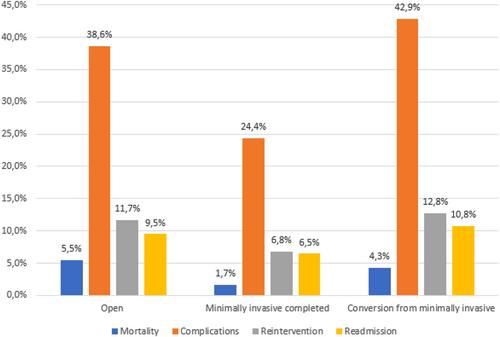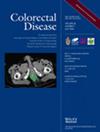The purpose of this Dutch retrospective population-based study was to evaluate how short-term outcomes and inter-hospital variability after right hemicolectomy for colon cancer have evolved between 2012 and 2020.
Patients who underwent right hemicolectomy for primary solitary colon cancer between 1 January 2012 and 31 December 2020 and were registered in the Dutch Colorectal Audit were included. Surgical characteristics and outcomes were assessed during three time periods (2012–2014, 2015–2017, 2018–2020). Complications and mortality were the primary outcomes, and reintervention, readmission and length of stay secondary outcomes.
In total, 29 274 patients were included. Significant increase in minimally invasive surgery (51.1% 2012–2014, 73.2% 2015–2017, 85.0% 2018–2020), increase in conversion (6.6%, 7.8%, 9.1%, P < 0.001) and decrease in acute/urgent resections (15.9%, 11.7%, 10.9%, P < 0.001) were found. The overall complication rate was slightly lower in the third period (30.9%, 30.6%, 28.8%, P = 0.004), primarily because of decreasing non-surgical complications (19.7%, 20.6%, 17.6%, P < 0.001), while surgical complications remained unchanged (17.5%, 18.3%, 18.2%, P = 0.277). Postoperative mortality was 3.4%, 2.3% and 3.5%, respectively. Reintervention rate slightly decreased (9.4%, 8.3%, 8.6%, P < 0.001). The proportion of patients admitted for more than 6 days decreased over time (54.3%, 42.4%, 34.3%, P < 0.001), with an increase in readmission rate (7.4%, 6.8%, 9.3%, P < 0.001). Inter-hospital variability decreased over time for complications, length of stay and conversion.
This study shows a national decreasing inter-hospital variability in clinical outcomes after right hemicolectomy and a decrease in postoperative complications. Despite increasing use of laparoscopy, surgical complications and mortality remained stable over time.



